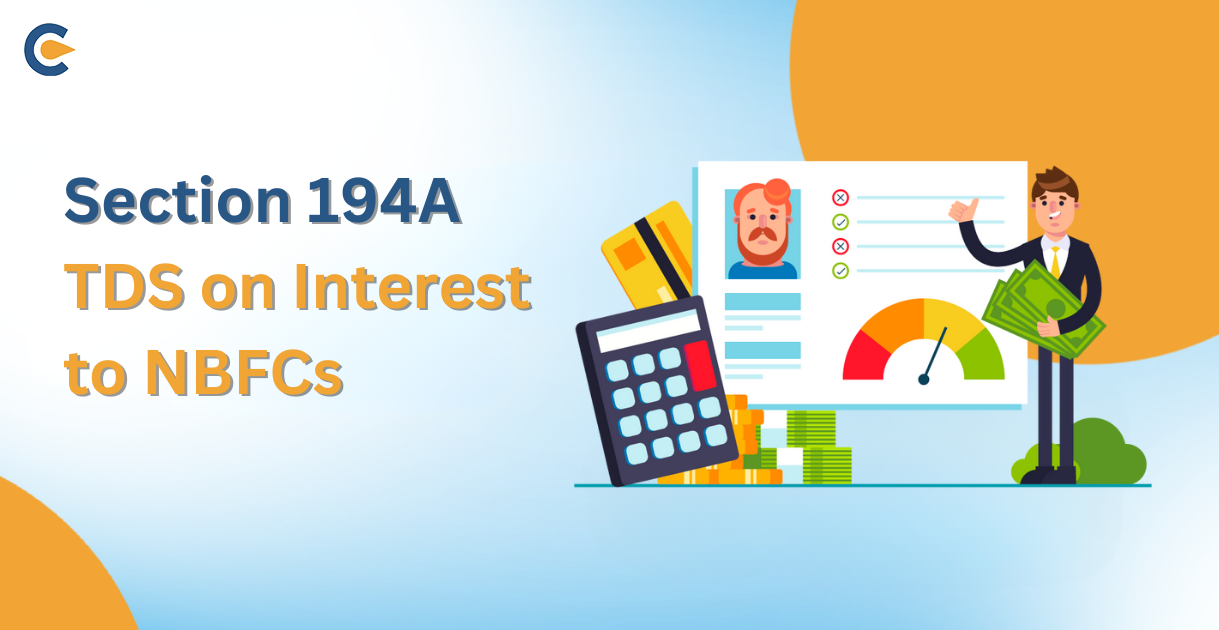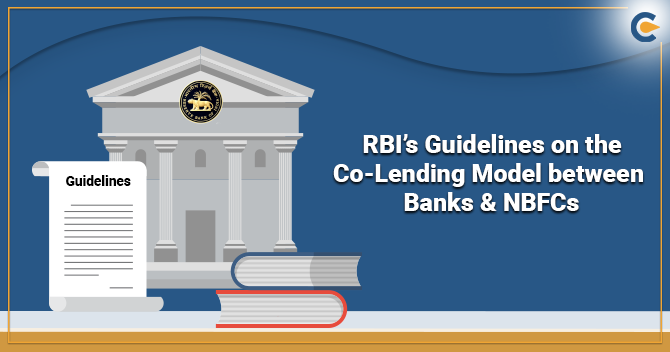Fulfilling compliance obligations with Section 194A TDS on interest to NBFCs is crucial. The Income Tax Act of 1961’s Section 194A deals with the deduction of tax at source (TDS) on interest payments, and it specifically affects non-banking financial companies. According to this rule, before crediting the interest amount to the receiver, anyone, including NBFCs, making interest payments above a certain level is required to deduct TDS at the stipulated rates. Because they offer lending facilities outside of the traditional banking system, NBFCs are essential to the financial ecosystem. As important middlemen, they frequently take part in lending operations where investors and depositors are paid interest. By imposing TDS on interest income, Section 194A of the Income Tax Act of 1961 seeks to ensure tax compliance and revenue collection. It helps to further the goal of upholding fiscal restraint and transparency in financial transactions involving NBFCs.
When is TDS under section 194A deducted?
TDS on interest to NBFCs, banking institutions, or a financial institution is deducted by the interest payer at source if the amount that has to be paid exceeds the amount of Rs 40,000. It is not the case that only TDS on interest to NBFCs is paid as it includes other institutions like –
- A Bank, Banking institution, or even a Banking company.
- Any Banking business engaged in a cooperative society.
- Post-office (which accepts deposits based on any scheme by the Central Government).
After the financial year 2018-19, the rule was made that TDS on interest to NBFCs or other institutions will not be deducted for senior citizens up to Rs 50,000. These institutions should pay this amount –
- Bank Deposits
- Post Office Deposits
- Schemes of Fixed Deposits
- Schemes of Recurring Deposits
- NBFC Deposits
Salient Features of TDS on Interest to NBFCs
Some of the salient features of the TDS on interest to NBFCs are as follows –
- TDS on interest to NBFCs is deducted from Loans, advances, and credit card bills. Loans can be secured or unsecured.
- TDS on interest to NBFCs can also be deducted based on the securities. However, this provision is covered by section 193 of the Income Tax Act of 1961.
- TDS on interest to NBFCs is only applicable to Indian citizens and not even Non-Resident Indians.
- A copy of Form 15G (for recognized resident Indians under 60 & Hindu Undivided Families (HUF)) or Form 15H (for acclaimed resident Indians turning 60 during the term of Financial Year or who have already touched the mark of 60) can be submitted to the interest payer if the individual or entity who is to be assessed for such interest income is not required to pay taxes because their income does not exceed the minimum income slab, which is taxable according to government regulations.
When is TDS on Interest to NBFCs Deducted?
TDS on interest to NBFCs is deducted at times like –
- TDS on interest to NBFCs is deducted when the interest has to be paid in any mode like cheque, cash, a draft, or any other significant payment mode or when the interest payment is credited to the relevant account of the tax-receiving individual. Either one is opted based on the situation as to which one is earlier.
- If the interest is credited as Suspense Accounts or Interest Payable Amounts into the accounts, it will also be treated as TDS on interest to NBFCs.
Also, Read: A Guide on Complete Checklist for NBFC Compliance
Analysis of TDS on Interest to NBFCs
NBFCs came into force to help the ones in need financially with easy loan sanctions. However, there are certain obligations, consequences of non-compliance, and challenges associated with the NBFCs and deduction of tax at source. Those who are indulged in the business of NBFC registration must keep these points in mind. These are as follows –
Obligations
Section 194A of the Income Tax Act of 1961 has mandated that a 10% tax on interest payments must be deducted by the businesses that are sent to residents who are neither banks nor banking institutions. This is why, interest payments to NBFCs are taxed at 10%, unlike banks and other financial institutions.
Non-compliance Consequences
Neglecting to appropriately deduct the required taxes may result in severe consequences. Under such circumstances, companies can discover that up to 30% of their interest costs are not tax deductible. As a result, they may be required to pay taxes on this amount that is prohibited, maybe at a rate of 30%, which would result in a 9% tax expense for the company. Tax authorities may also take legal action and impose penalties for noncompliance with their requirements. Businesses must make sure that tax regulations are followed to prevent these negative consequences.
Challenges during TDS on Interest to NBFCs
Many problems are faced during the TDS on interest to NBFCs, one such problem is issues in tax deduction while paying EMIs as the portals of payments do not accept any EMI amount that is less than what the EMI amount was. It makes it impossible for businesses to deduct the interest at source.
The Final Words
To sum up, Section 194A of the Income Tax Act of 1961 is a crucial component of the tax system that oversees non-banking financial companies (NBFCs). It guarantees compliance with tax laws and expedites government revenue collection by requiring tax deduction at source from interest payments. By highlighting the significance of accountability and openness in financial transactions involving NBFCs, this clause supports the general integrity of the financial system. Maintaining tax compliance and budgetary restraint is contingent upon the successful implementation of Section 194A, given the critical role that NBFCs play in facilitating credit facilities and stimulating economic growth.
You can take the help of Corpbiz in determining the deduction of tax at source that is to be deducted while collecting the interest. You can consult the strategies with our experienced tax associates on how to invest in a way that your tax liability, under Section 194A of the Income Tax Act of 1961, can be reduced.
Interesting Read: NBFC Registration – Know the Entire Incorporation Procedure
Frequently Asked Questions
- Q- 1 What is the limit of tax deductions for senior citizens?
After the financial year 2018-19, the rule was made that TDS on interest to NBFCs or other institutions will not be deducted for senior citizens up to Rs 50,000.
- Q- 2 What is the rate at which tax is deducted at source?
The rate at which tax is deducted at source is as follows –
If a PAN card is there, then 10% of the interest
If a PAN card is not there, then 20% of the interest
Also, the tax is deducted at the basic rate from the source, so there can be no education cess, surcharge, or SHEC should be added to these rates. - Q- 3 Why is interest taxed on NBFCs and not banks?
Section 194A of the Income Tax Act of 1961 has mandated that a 10% tax on interest payments must be deducted by the businesses that are sent to residents who are neither banks nor banking institutions. This is why, interest payments to NBFCs are taxed at 10% unlike banks and other financial institutions.
- Q- 4 What is the objective of section 194A of the Income Tax Act?
By imposing TDS on interest income, Section 194A of the Income Tax Act of 1961 seeks to ensure tax compliance and revenue collection. It helps to further the goal of upholding fiscal restraint and transparency in financial transactions involving NBFCs.
- Q- 5 When can the tax be deposited if deducted from the source?
Tax deducted between April and February of the financial year can be deposited on or before the 7th day of the next month; however, tax deducted in March can be deposited on or before April 30th.
- Q- 6 Is interest in a savings account taxable under the law?
Yes, interest in a savings account is taxable under the law. However, it is not taxable under section 194A, as is done in the case of FDs and RDs. It is taxed under section 80TTA with a maximum of Rs 10,000 yearly as per the Income Tax Act, 1961.
- Q- 7 When is TDS deducted while paying interest to partners?
TDS is deducted while paying the interest to partners in cases where the previous year's turnover exceeds Rs 1 crore.
- Q- 8 What is the significance of section 194A of the Income Tax Act?
It guarantees compliance with tax laws and expedites government revenue collection by requiring tax deduction at source from interest payments. By highlighting the significance of accountability and openness in financial transactions involving NBFCs, this clause supports the general integrity of the financial system.
- Q- 9 Which institutions other than NBFCs are liable for TDS on interest?
The institutions other than NBFCs liable for TDS on interest are as follows –
A Bank, Banking institution, or even a Banking company.
Any Banking business engaged in a cooperative society.
Post-office (which accepts deposits based on any scheme by the Central Government). - Q- 10 Who deducts TDS on interest to NBFCs?
The person who makes interest payments apart from interest on securities has to deduct TDS on interest to NBFCs only if section 194A of the Income Tax Act conditions are met.











